The NHL is leaving Arizona, but there is a clear path for it to return. Will that happen? … Utah’s new franchise next season could boost already record-setting league-wide attendance. … The Caitlin Clark economy is hitting local media in Indiana. … MLB legend Randy Johnson chats with FOS Today about his newest passion. … And we look back on a pivotal draft decision for America’s Team.
—Eric Fisher and David Rumsey
|
|
|
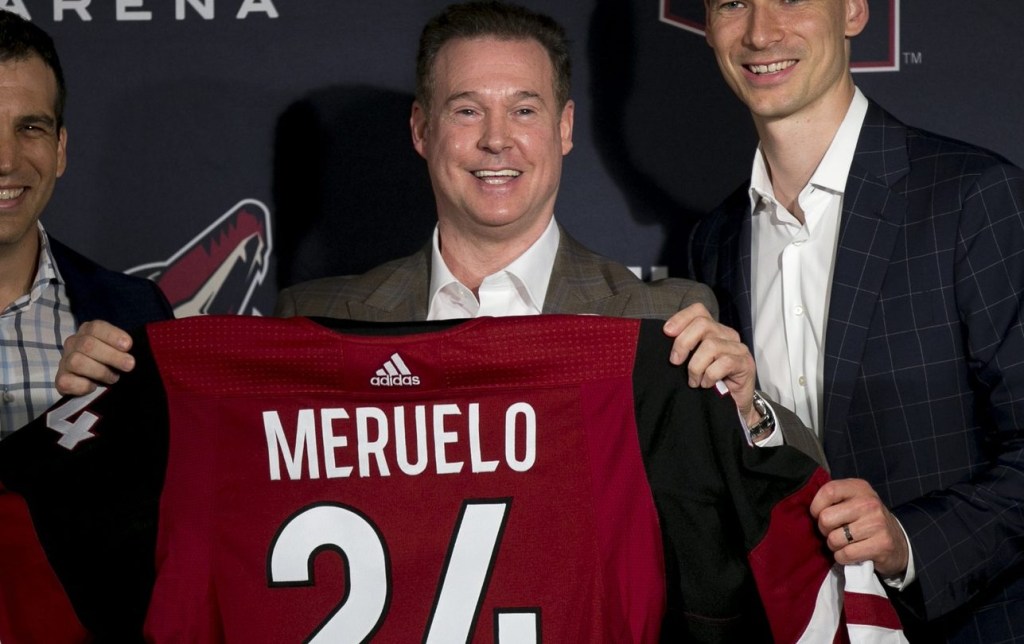
|
Thomas Hawthorne/The Republic
|
Former Coyotes owner Alex Meruelo is now officially on the clock to develop a new arena in the Phoenix area and revive the franchise rendered “inactive” by the NHL. But more local roadblocks could be impeding his progress toward that goal.
In the wake of the Coyotes’ move to Utah, Meruelo and NHL commissioner Gary Bettman met last week with local Phoenix media. There, Bettman conveyed his long-held desire to succeed in what remains the No. 11 media market in the U.S. But the commissioner acknowledged there could be a repeat of the political opposition in Arizona that already has seen the Coyotes rejected in both Glendale and by voters last year in Tempe.
“If there’s outright hostility to another arena, and there are forces at bay that are going to do everything to prevent it, that’ll be a problem,” Bettman said. “But I don’t doubt Alex’s commitment to try and deal with all of those head on.”
The complex, two-stage transaction in which Ryan Smith, owner of the NBA’s Jazz and two pro soccer teams, acquired the franchise contains a defined, five-year window during which Meruelo will have a chance to develop an arena and revive the Coyotes as an expansion team. Rather than stripping the Coyotes from Meruelo in totality, he gets a clear opportunity to “reactivate the franchise.” Bettman lauded the deal as a “scenario that I don’t think anybody’s ever done before.”
The Clock Is Ticking
But the answer on whether that will happen will almost certainly arrive much sooner. Meruelo must provide the NHL a minimum of 18 months’ notice to revive the franchise. More substantively, Meruelo said much of the franchise’s hopes are tied into a June 27 land auction, where he intends to secure a 110-acre parcel of state-owned land in north Phoenix, initially appraised at $68.5 million.
“The most important and critical thing we have to do now is win that land auction,” Meruelo said.
That land is designed to be part of a $3 billion arena and mixed-use development. A component of the project is premised on using the city’s credit rating to help finance the development, and imposing a sales tax on anything sold within the arena district, using a state law to create a special theme park district with taxing authority within it. As has been the case since the Tempe defeat last year, both the NHL and Meruelo are planning on proceeding without putting the project back in front of voters as a referendum.
“Referendums in sports are kind of tough,” Bettman said. “They generally don’t pass, we’ve learned. Kansas City, with the Super Bowl champions, just had a referendum fail. This project as currently outlined doesn’t require a referendum.”
Financial Matters
Meruelo spent $300 million for the Coyotes in 2019, but with the NHL paying $1 billion for the franchise in the transfer to Smith, that would suggest a $700 million profit, a tidy sum for the less than five years of ownership.
But industry sources tell Front Office Sports his true profit number is closer to $400 million when accounting for annual losses of at least $30 million, $20 million in improvements to Mullett Arena, and roughly $100 million in debt that was repaid as part of the recent transaction. Meruelo will be responsible for paying back $1 billion to the league as essentially an expansion fee should he succeed in reactivating the franchise.
|
|
|
|

|
22,873,142
Total attendance for the NHL during the 2023–24 regular season, up by 2% from a year ago and a new league record. Playing at 97% capacity across the league, the attendance total highlighted what was a banner campaign for the league that also included an 8% bump in national TV viewership on TNT, ESPN, and ABC, and the NHL’s most-watched regular season since ’16. That attendance number is also due for a further and significant boost with the shift of the Coyotes to Utah. By playing at the Delta Center, which currently offers about 12,000 unobstructed seats for hockey, instead of the Mullett Arena, which seated 4,600 for Coyotes games, the league is due for an aggregate attendance bump of more than 300,000 next season.
|
|
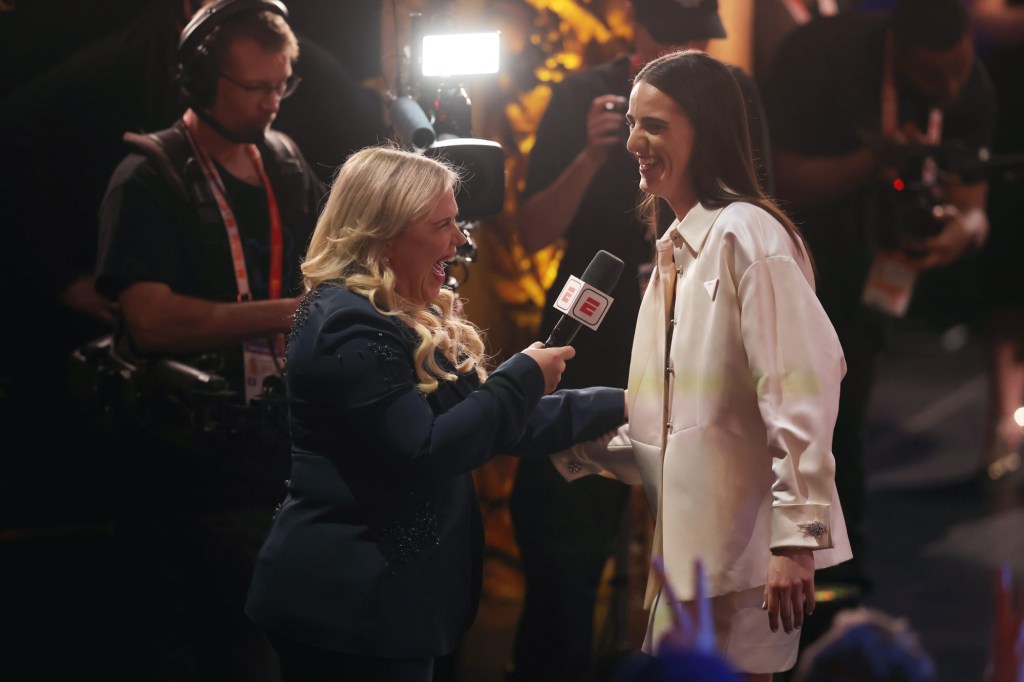
|
Brad Penner-USA TODAY Sports
|
Caitin Clark is showing once more that the WNBA economy developing around here holds few limits.
One week after the Iowa superstar was drafted by the Fever with the No. 1 pick—fueling record ratings for the WNBA draft and meteoric rises in ticket sales—the team struck a deal Monday with Tegna to place 17 of the team’s games on the media company’s over-the-air stations in Indianapolis. Those games, beginning with a May 16 contest against the 2023 league runner-up Liberty, will be shown on either WTHR, the NBC affiliate, or WALV, the MeTV affiliate.
Dominating National Games
Even before the Fever selected Clark, 36 of the team’s 40 games were slated for national broadcast, with those games split between NBA rightsholders ABC, ESPN, ESPN2, Ion, NBA TV, Amazon Prime Video, and CBS Sports Network. The Tegna deal expands that reach locally, and also includes the four games that hadn’t been scheduled to air. The company added that it is working “with additional broadcast companies in the coming weeks to expand free over-the-air access to all available television markets outside of Indianapolis” as the interest in watching Clark continues to grow.
“This is an exhilarating moment for women’s sports. The WNBA and Fever are leading the charge with this groundbreaking local broadcast rights agreement,” said Dave Lougee, Tegna president and CEO. “The remarkable journey of Caitlin Clark and her teammates has captured the hearts and minds of millions.”
Embracing Over-the-Air Broadcasts
Several WNBA teams already have robust local broadcast coverage, particularly on regional sports networks, and the Fever last year had 10 games on Bally Sports Indiana and another 23 on the team Facebook page. But in addition to tapping further into the fervent interest around Clark, the Fever’s Tegna deal extends a fast-rising trend among teams embracing over-the-air broadcasts to reach cord-cutter and cord-never consumers.
The NBA’s Suns and Jazz broadcast all of their local games on free television, as do the WNBA’s Mercury and NHL’s Golden Knights. The newly relocated NHL Utah franchise similarly shifted to over-the-air television in its prior form as the Coyotes, and is expected to continue on that path.
|
|
|
|
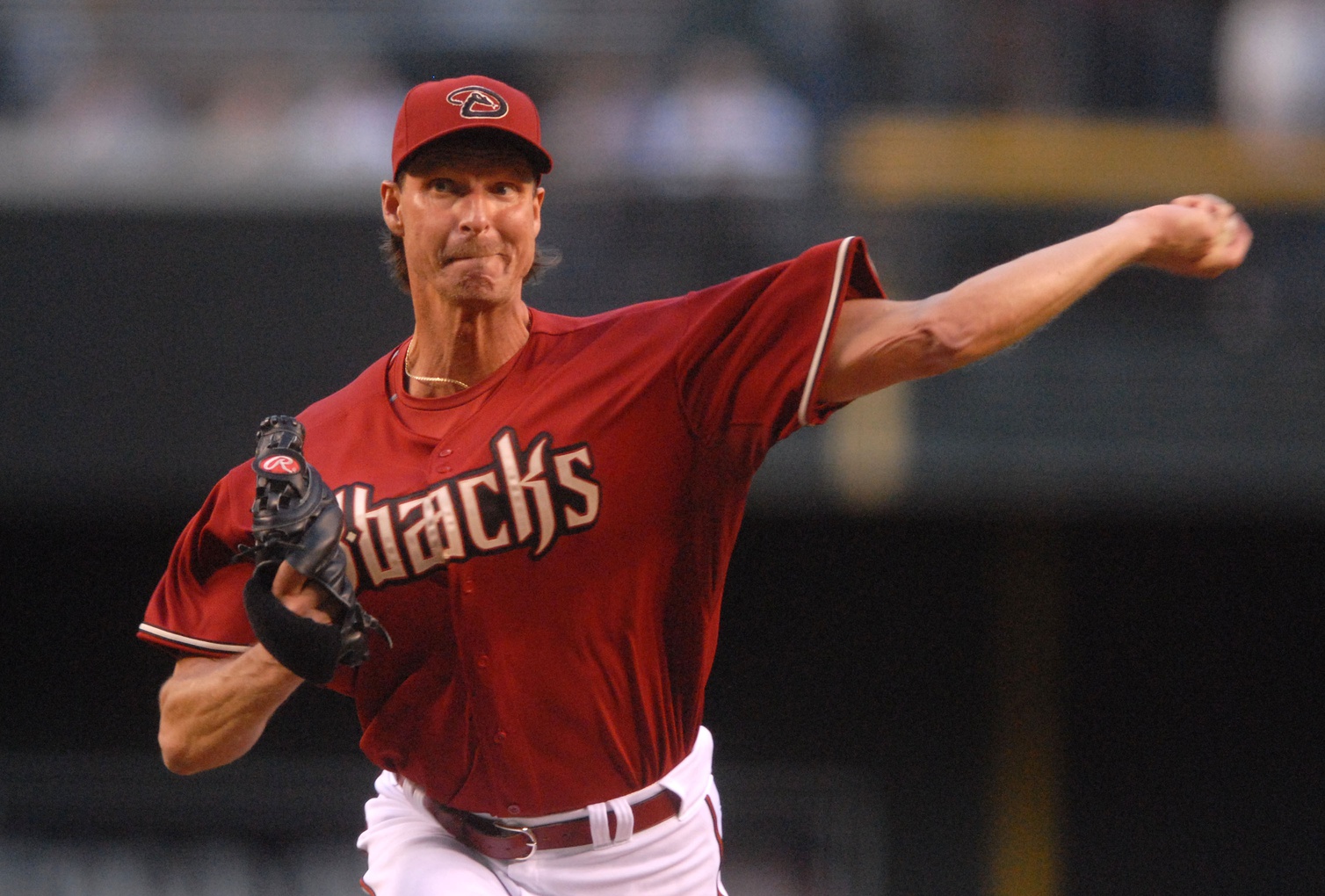
|
As a student at USC, Hall of Fame pitcher Randy Johnson began publishing his photographs in the school newspaper. Now 60, Johnson’s passion for capturing images has become a full-blown second career. He’s shot everywhere from an Iron Maiden concert to the African plains during the great migration (including 10,000 wildebeests). Johnson joins the pod to discuss what he looks for in a frame, how the pitch clock may be leading to MLB pitcher injuries, which modern hitter he would hate to face (the answer may surprise you), and, yes, the unfortunate bird that once crossed his pitch’s path.
🎧 Listen and subscribe on Apple, Google, and Spotify.
|
|

|
On this day 35 years ago: The Cowboys drafted UCLA quarterback Troy Aikman with the No. 1 pick in the NFL draft, marking a critical beginning in what would become both a league dynasty and owner Jerry Jones’s sports empire. Jones purchased the Cowboys just two months prior for $140 million, and after three straight non-playoff seasons, Dallas went 1-15 to start the new ownership era. But under the steady on-field guidance of Aikman, the Cowboys won Super Bowl titles following the 1992, ’93, and ’95 seasons, part of what would become a Hall of Fame career for the signal caller.
In no small part from the foundation of those three championships—still the only ones of the Jones era—the Cowboys have since grown into an industry giant worth $9 billion, easily the best in the NFL and also one of the most valuable sports franchises in the world. Aikman, meanwhile, has built a highly successful broadcasting career that includes a partnership with Joe Buck that will begin its 23rd season this year, representing the NFL’s longest-tenured announcing team. ESPN’s hire of Buck and Aikman two years ago for Monday Night Football, worth a combined $165 million, served as a critical piece of the network’s rebuilt relationship with the league. As for the rest of that 1989 draft? It remains one of the most stacked in NFL history, with fellow Hall of Famers Barry Sanders, Derrick Thomas, and Deion Sanders also selected in the top five.
|
|
- The NBA’s exclusive negotiating window with ESPN and TNT expired Monday at midnight. Potential challengers include Amazon, NBC, Netflix, Apple, and Google.
- Scottie Scheffler has won four out of his last five starts (and roughly $15.7 million in prize money), including victories at the Arnold Palmer Invitational, Players Championship, The Masters, and RBC Heritage.
- In the past four years, Ryan Smith bought the Utah Jazz for $1.66 billion in 2020, acquired Real Salt Lake for $400 million in 2022, revived the Utah Royals for $2 million in 2023, and he recently purchased an NHL team for $1.2 billion.
|
|
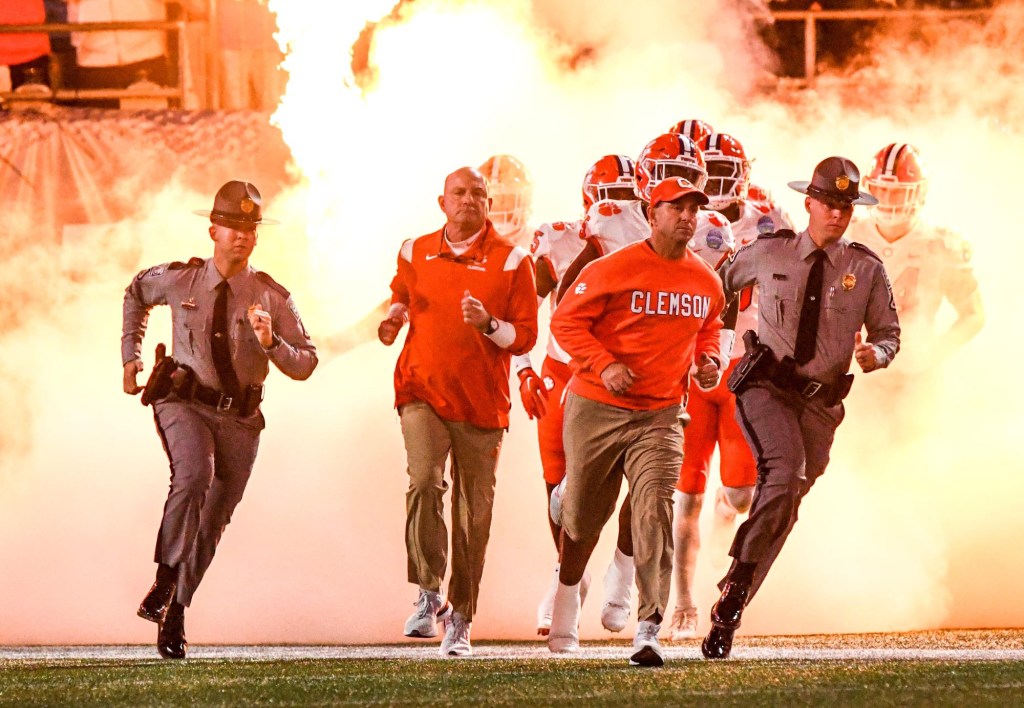 | Four lawsuits involving the conference, Clemson, and FSU could determine the future. |
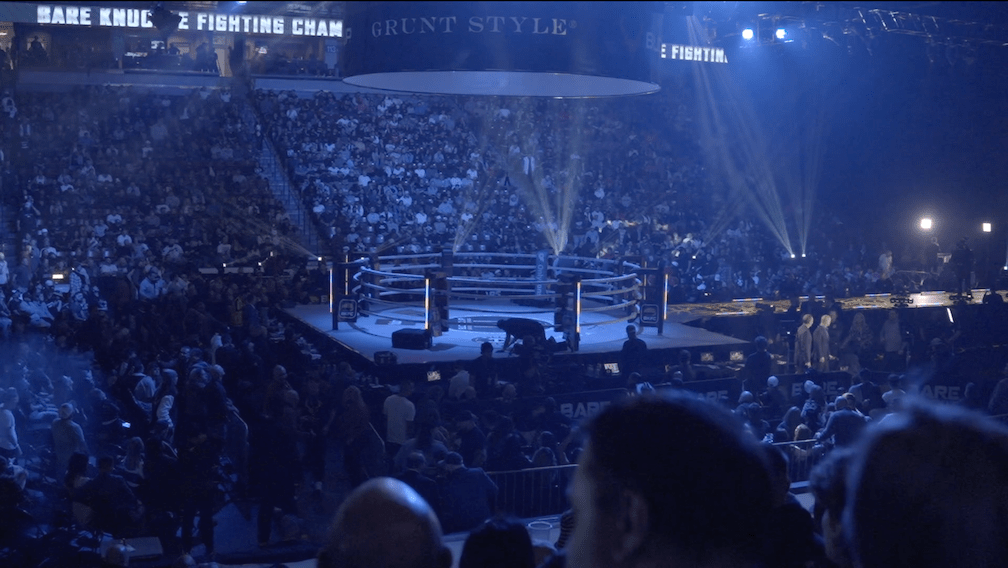 | With Proud Boys sponsoring him, experts say extremist groups will use his success to elevate their ideologies and recruit new believers. |
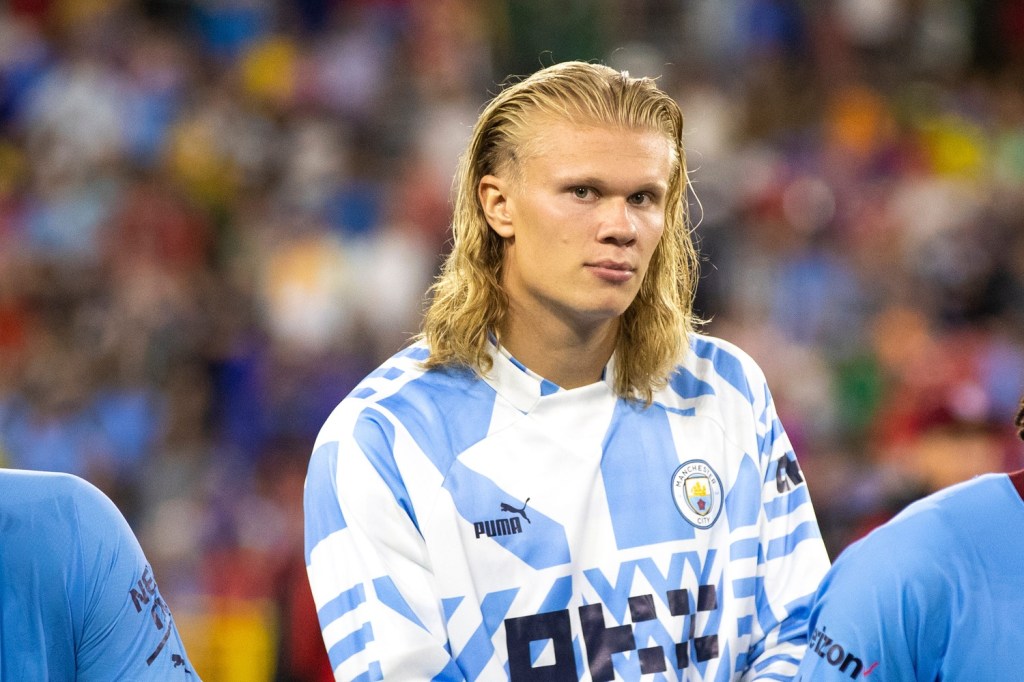 | Apple’s deal would be FIFA’s first single worldwide broadcast contract. |
|
|











